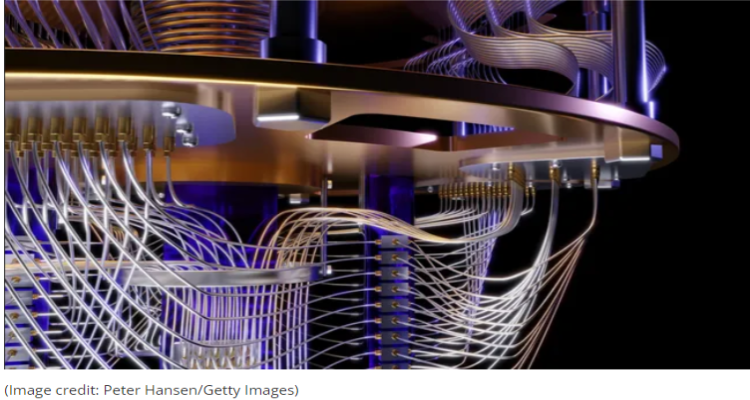Google’s Sycamore Quantum Chip Outperforms Supercomputers in Key Experiment

Google’s 67-qubit Sycamore quantum processor has outperformed the fastest supercomputers in a groundbreaking experiment. The chip entered a “weak noise phase,” allowing it to handle complex calculations faster than classical computers. This marks a significant step toward quantum supremacy, though challenges like error correction remain as quantum systems scale. Researchers used random circuit sampling to demonstrate this achievement, showing that quantum computers can already surpass classical systems in specific tasks despite their current limitations.
Google’s Sycamore quantum computer chip has surpassed the capabilities of the fastest supercomputers, according to a recent study. Experiments using the 67-qubit Sycamore processor revealed a new computational phase known as the “weak noise phase,” where calculations became complex enough to outperform classical supercomputers. This breakthrough, published in the journal *Nature* on October 9, demonstrates quantum computers’ ability to excel in specific areas, thanks to their reliance on quantum mechanics principles.
The research, led by Google Quantum AI’s Alexis Morvan, highlights that when quantum processors enter this “weak noise phase,” they can tackle computationally intensive tasks beyond the reach of classical computers. Google’s next goal is to create practical quantum applications that cannot be replicated on classical systems. However, the data produced by quantum computers remains “noisy,” meaning error correction will still be necessary as quantum systems scale up.
Qubits, the building blocks of quantum processors, can process data in parallel, unlike classical bits, which handle data sequentially. This allows quantum computers to solve problems that would take classical machines thousands of years in mere seconds. But qubits are also highly sensitive to external factors like temperature changes or magnetic fields, leading to a higher error rate compared to classical bits.
To test the quantum chip’s capabilities, researchers used random circuit sampling (RCS), a performance benchmark that compares quantum computers with classical supercomputers. The Sycamore chip’s 67 qubits were able to transition into the “weak noise phase,” where they outperformed classical computers in complex calculations, marking a significant step toward quantum supremacy. However, as quantum computers scale up, error correction technologies will be needed to handle the increased sensitivity of qubits.
This experiment suggests that, despite current limitations, quantum computers can already outperform classical systems in specific tasks, with even greater advancements on the horizon.










